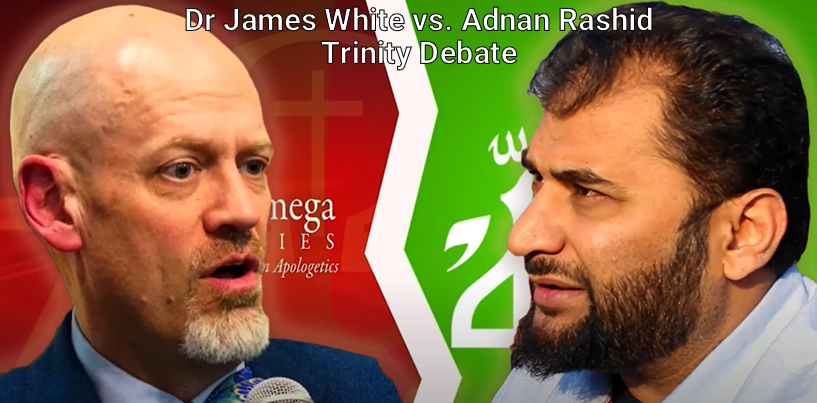Reflections on the Baptist Confession of Faith of 1689. 23 Aug 14 began a perhaps unbroken, orderly, and personal journey through my favorite written confession of faith. This will be my personal reflections on this beloved written codification of the Christ faith according to a Baptist flavor.
NEXT-
Chapter 3, paragraph 1: “…nor yet is the liberty or contingency of second causes taken away, but rather established; in which appears his wisdom in disposing all things, and power and faithfulness in accomplishing his decree.”
Last week we saw how God does not force anyone to sin by violence, and a bit about how he is not the author (or perpetrator) of sin in mankind. I attempted to briefly deal with the inescapable reality that invariably arises when one deals in these subjects which is that God can only be called sovereign if he is sovereign even over sin. In short, if God is not sovereign over absolutely everything then he is simply not sovereign. If sin was an accident when it entered the human race then God was a fool. Perhaps a caring fool if he went with plan “B,” a cross, but a fool nonetheless. I cannot see God as a fool. He was not unaware that the serpent had entered the garden! He had a plan all along. There is something deeper here. God is good and so we can and should approach the subject through Scripture. Why suffering? Why evil? The answers require work but they are there in God. Many of us want to completely separate God entirely from the difficulty of sin and evil. It’s easy, if we are not diligent Bible students, to sort of put God in one room and Satan in another never wanting evil and good to meet in our theology. Job’s story alone shuts that down. We shouldn’t do this. We must eventually try to answer the question of the existence of evil under the reign of an omnipotent God if we’re moving through the Bible. Here we’re talking about evil entering the human race (and therefore you and me) and destroying us all. This confession sorts its dealing with the subject, as it applies to us all, by often centering or defaulting its verbiage or focus on our first parents, and Adam specifically as our federal head. Sin exists under a completely holy and good God. One day it won’t, but for now it does. How? This section of the creed offers a real key to properly understanding this difficulty.
In Adam, as I said before, the freedom of the will of all mankind was lost. Slaves are not “free” in every sense of the word, John 8:34. Circumcision, as a sign of the Old Covenant, was God’s ultimate way to communicate to his people that mankind needed a complete overhaul. Our corruption as humans is best shown in what we produce- our kids, and we are all “products” of Adam. Adam had a liberty unlike ours at the start in that he was created totally free from sin. We weren’t, but we can draw a myriad of parallels between us as God designed. Adam’s liberty was not taken away until he sinned. Even in us today now born under SIN, our liberty is not entirely taken away. We are free…to sin. We do only that (Romans 3:9-18) and are now bound to our sin by nature, Ephesians 2:3, but we sin only willingly. Our choices bring about consequences or contingencies in life. God is over them. If I had done A, then B would not have happened, etc. We can sometimes trace the consequences of our decisions. God can trace the seeming randomness of our lives back through all of time. One day I will see how my failure to do the right thing and run track in high school was somehow distantly related to the digging of a well in Samaria or something. I think God delights in his ability to bring about his plans perfectly through the flapping of a butterfly’s wings over a century. God knows all beforehand, but we do not. The consequences of our choices are unknown to us until we make them. SIN in our lives is a consequence of our first parents. Regarding our propensity to sin, Ravi Zacharias once said, “We are not sinners because we break God’s moral law; we break God’s moral law because we are sinners.” Well said. Our nature is the problem. The law simply affirms it. Sin is real and evil is the dominant reality of this world. The confession needs to affirm our role in SIN and so these statements are given to help the church.
The confession speaks of “secondary causes.” Secondary causes in regard to sin are the wills of Satan, Adam, Eve, and us. We all bring about sin by our desires. Since Adam’s fall our wills have been hellbent. Nevertheless, God is about the ultimate good. Jonathan Edwards said that God is, “the permitter…of sin; and at the same time, a disposer of the state of events, in such a manner, for wise, holy and most excellent ends and purposes, that sin, if it be permitted…will most certainly and infallibly follow.” This is precisely what Paul revels in in Romans 11:32-33. We will all marvel.
There are many examples of God bringing about good through evil in the Bible. From these examples the confession writers, and others, extrapolate the doctrines of “secondary causes.” They seek to affirm our wills as having parts to play in it all under a good God in whom there is no evil, James 1:17. Romans 5:8 says, “God demonstrates His own love toward us, in that while we were still sinners, Christ died for us.” There had to be sin to do this! Please see my letter entitled, “On Free Will and Categories of Love” for a treatment on man’s position in life as it is.
What follows in closing is the clearest example from the Bible I think we can give of the clarity of secondary causes as the confession speaks of them here. This part of the confession speaks of God’s wisdom in bringing about what he has decreed. God decreed the death of Jesus as the ultimate victory over evil right after the Fall. Genesis 3:15. We see this even then. The cross was God’s idea and I’d contend the reason for which this world was created those thousands of years ago. Christ’s crucifixion was the worst sin ever committed. God did not do it, yet it was actually his pleasure to orchestrate it (Isaiah 53:10), and in fact to bring it to pass down to every detail. This was God bringing about the greatest of good through the very worst of evil. It was the triune God’s plan. He, in the most absolute sense of the word, is the primary cause of all things of life. We can do nothing without him, even sin. Our sin is ours, our wills are ours, but they are ours under God’s. God brought about the death of the Son through evil man, the secondary cause. The evil men in Jesus’ day were not forced by God to kill him. They did so freely and according to their own wills. The Jews involved hated him for shutting down their fake faith. The Romans killed him under the guise of political expediency. The crowds hated him without a cause and though un-coerced cried out, “His blood be on us and on our children,” Matthew 27:25. Yikes! They “wanted” him dead for their own reasons, reader. They’re not otherwise good puppets on the strings of a malevolent God, they’re evil sinners under a holy God who brings about good through their bloodthirstiness. They are the guilty! The confession affirms this with great precision. They were the secondary causes in Jesus’ death and their liberty, limited though it was, was not “taken away” by God’s overarching plan. Rather, on the contrary as the confession says, their liberty is actually affirmed in all of this. No hands of the Spirit were seen on the hammer or nails, it was the hands of Roman Soldiers at the behest of some fallen Jews under the consent of the crowd. Here it is: Acts 4:27-28: “Indeed Herod and Pontius Pilate met together with the Gentiles and the people of Israel in this city to conspire against your holy servant Jesus, whom you anointed. They did what your power and will had decided beforehand should happen.” Here are four people groups under the eternal plan of one triune God. There is God’s plan, brought about through secondary causes, showing his wisdom from the start to bring about the free salvation of every believer through the greatest of evils. God is good. We are anti-good.
We are all the “secondary causes.” God will work good out of this wretched world. May our wills align with what is good and bring glory to God by bringing about good through and not despite us! His wisdom will be shown in all things. His will be done.








Leave a Reply